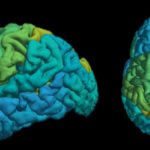A team of researchers led by King’s College London released new findings in Translational Psychiatry in an effort to better comprehend how gene expression associated with inflammation may be used to establish people with depressive disorders who are responsive to drug treatments.
In past studies, the link between inflammation and depression is backed by strong evidence, however, many questions remain unanswered.
“Our study has provided important insight into the mechanisms that can explain the link between inflammation and depression which will especially impact the future of personalised psychiatry,” said Carmine Pariante, co-author of the study, in a news release.
As part of the study, blood samples from more than 120 patients diagnosed with clinical depression and 40 healthy participants, were examined.
In the findings, researchers observed the possibility of establishing patients with depression who are not responsive to particular antidepressant drug treatments from those who experience beneficiary effects, based on indicators of inflammation.
“In this study we show for the first time that it is possible to distinguish patients with depression who do not respond to medication from those who are responding to the antidepressant medication, based on the levels of well-known measures of inflammation and the presence of molecular mechanisms that put this inflammation into action,” according to Annamaria Cattaneo, the study’s lead author.
“This could potentially provide a means to assess which treatment options may be more beneficial from the outset.”
Overall, the new findings provide more weight to the notion that patients who are unresponsive to antidepressants or untreated may have increased inflammation compared to healthy controls.


